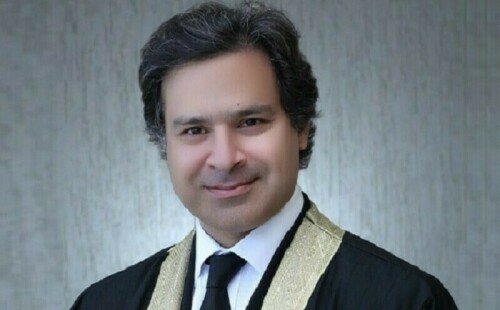
ISLAMABAD: Foreign Secretary Tehmina Janjua on Tuesday reaffirmed the government’s commitment to maintaining balance in relations with Tehran and Riyadh despite joining the Saudi-led military alliance.
“It is important to keep the balance even though it’s very challenging. Saudi Arabia is a very important relationship while Iran is a neighbour,” the new foreign secretary said in her first appearance before the National Assembly’s Foreign Affairs Committee that began deliberating on Pakistan-Iran relations.
Though the discussion was on the broader issue of Pak-Iran relations, Pakistan’s participation in the military alliance being forged by Saudi Arabia and the government’s decision to allow former army chief retired Gen Raheel Sharif to lead it dominated the discussion at the committee meeting.
Chairman of the committee Awais Leghari set the tone for deliberations by asking the foreign secretary to explain what the government was doing to balance ties with Iran in view of its decision to join the Saudi-led alliance, whether the government had allowed Gen Sharif to serve as commander of the alliance and what steps had been taken to clarify Pakistan’s position to Iran. He also asked about delays in Iran-Pakistan gas pipeline project, bilateral trade relations, Iran’s potential role in cooperating on Afghanistan and the Indian spy Kulbhushan Jadhav affair.
“Why things don’t move on Iran?” Mr Leghari pointedly questioned.
Decision to join Saudi-led military alliance dominates discussion at NA panel’s meeting
Ms Janjua said Pakistan had conveyed to Iran that while in the alliance, it would not act against Iranian interests nor would a Pakistani serving the alliance undertake any such action. “Our retired military personnel, no matter where or in what capacity they serve in foreign countries, would never act against brotherly country Iran,” she said without naming Gen Sharif, who had been named as the first commander of the military alliance that is yet to take shape.
Iranian envoy Mehdi Honardoost has already, in a media statement, dismissed Pakistani assurance saying it was not necessary that Iran was satisfied with it. The perception in Iran is that under the garb of fighting terrorism the military alliance will intervene in Iraq and Syria and Saudi Arabia will also push the alliance into Yemen, which it has been bombing for over two years.
Rejecting the concerns about the alliance, Ms Janjua said, “The Islamic military alliance is focused on combating terrorism. It is neither for nor against any country.”
The secretary confirmed that the alliance was in its formative phase. “Details and structure of the Islamic countries’ alliance, including its rules and procedures, are yet to be developed,” she said. However, following criticism by members as to why Pakistan had rushed to join an alliance whose terms of reference weren’t clear, she said: “The fact that the alliance is not structured gives flexibility to the members with regards to their contributions.”
Recalling neutrality in Saudi Arabia-Iran disputes, Ms Janjua said Pakistan had in the past scrupulously avoided taking sides between Iran and Saudi Arabia. She recalled Pakistan’s efforts to defuse tensions between the two and said such efforts would continue. She said that while it was for Saudi Arabia and Iran to sort out their differences, Pakistan would play the role of ‘honest broker’ for finding a way to resolve them.
The Pakistan Tehreek-i-Insaf (PTI)’s parliamentary leader Shah Mehmood Qureshi pointed to sensitivities linked to the government’s decision to join the alliance. “Pakistan has the second largest Shia population in the world and there are concerns in the Shia community about the decision,” he said, adding that Pakistan would have to tread very carefully.
He asked why a number of Muslim countries had been left out if the alliance was not against any country.
PTI MNA Shireen Mazari too expressed reservations about the alliance and saw it as a US attempt to encircle Iran using ‘Sunni countries’. She said sectarian issues were linked to the alliance as some of its members were already involved in Yemen while Bahrain was carrying out a crackdown on its Shia population. “There are clear sectarian overtones.”
Published in Dawn, April 5th, 2017














































